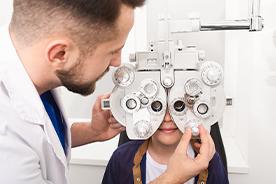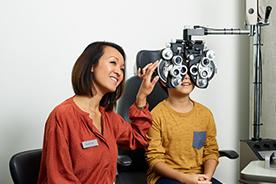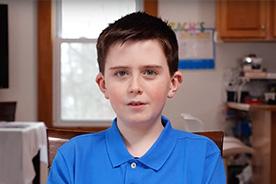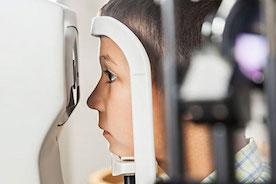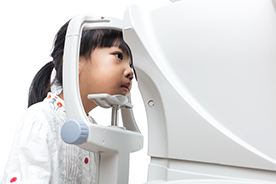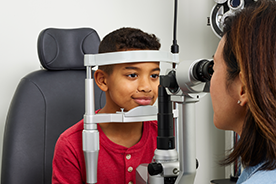Valerie and Greg always knew their 8-year-old twins, Olivia and Madeline, might develop myopia – the medical term for nearsightedness – because they did as children. Myopia tends to run in families, and the chances of a child developing myopia increases 6x when both parents have the condition.1 “It was always a challenge,” says Valerie, remembering their childhood struggle with myopia. So naturally when the twins started struggling to see the clock from the living room, the parents worried how this might affect the twins, who are both in dance and gymnastics, and live active lives.
Myopia is the condition in which the eyeball is longer than it should be, or the cornea is curved too steeply. Instead of focusing precisely on the retina, light focuses in front of the retina, resulting in blurry distance vision.2 The end result is nearsightedness. This can easily be rectified with corrective eyeglasses, which Greg and Valerie assumed their girls would have to wear. However, they discovered they had other options that would not only correct their vision but would help to slow the progression of their myopia.
Their ECP prescribed MiSight® 1 day contact lenses by CooperVision®. These daily disposable lenses are specially designed for myopia control and are FDA approved* to slow the progression of myopia in children aged 8-12 at the initiation of treatment. †3 The lenses offer a level of ease that both parent and child can take comfort in. After doing his research, Greg saw MiSight® as a “very approachable solution to the problem” that would allow his girls to continue with their hobbies as normal. Both daughters have adapted to wearing the lenses smoothly, putting them in themselves without any assistance. But for Madeline the most exciting thing about the lenses is “to be able to see better.3,4,5”
A key benefit of MiSight® is that these lenses help slow the progression of myopia3† which will have a positive impact in the future of children’s eye health. Greg and Valerie wanted to give their daughters a better outcome when it came to their eyesight than they had, so they jumped at the opportunity to try MiSight® when their MiSight® certified eye care doctor offered the lenses to them. “The studies showed that it did slow the progression of their myopia,” says Valerie, “I wanted to give them that advantage.”




